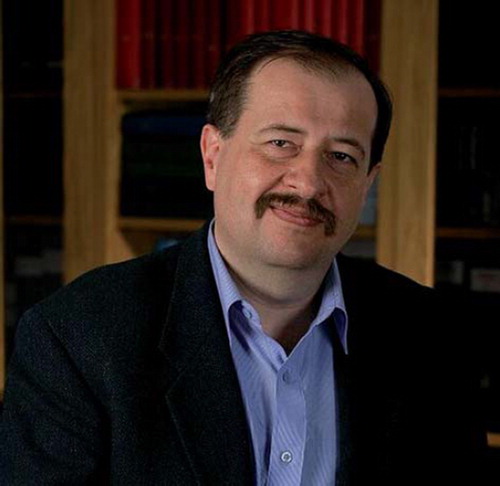The right way to do things,
is not to try to persuade people you're
right, but to challenge them to think it
through for themselves.
Noam Chomsky
For many years now, shortage of doctors is evident in European countries. It can be seen as a consequence of rapid technological progress, deeper specialization, and increased demand from aging of the population. The affluent Northern and Western parts of the continent have partially addressed this problem by attracting trained physicians from abroad, especially from countries of Central and Eastern Europe, which joined the EU in 2004. Many of these doctors (and possibly their patients) faced numerous problems and returned home, while others stayed and adapted themselves to new cultural and medical realities, with varying degrees of success. These movements of doctors have not only failed in adequately solving the original problem, but their dislocation created professional gaps in other regions. The picture becomes even more complicated, when we take into account that in Northern and Western European health care systems primary health care has a relatively well established position, with a central, fully developed role for general practice, whereas in Southern, Central and Eastern Europe health care systems are still in transition, progressing with different speeds towards establishing the specialty of family medicine (Citation1).
As a consequence, increasing the number of trained doctors remains a political challenge, hard to face in times of economic crisis. Other solutions explored nationally have been equally problematic. In Poland, traditional internship, seen as a transition between basic medical education and vocational training, has been abandoned as inefficient. The responsibility of shaping desired competencies to practice medicine independently has been shifted to the last stage of medical studies. At the same time, developments in medical science have resulted in further fragmentation of medical disciplines. New sub-specialties like diabetology, angiology, hypertensiology, hepatology, etcetera have appeared, competitively seeking opportunities to find their place within busy and overloaded curricula. Surprisingly, in this environment general practice has not lost its ground. Politicians and decision makers understand, somewhat paradoxically, that only general practice is able to prepare students in their future medical careers, not only in primary health care, but also in specialized disciplines.
To meet these challenges, development of an efficient educational infrastructure becomes an urgent issue, especially in countries with less developed primary health care systems. Growth of academic staff and expansion of the university base is generally well understood in this context. Alternatively, the development of community based teaching practices, equally essential, is often underestimated. The fact that a skilled and highly performing family doctor must also perform well as a medical teacher is frequently undervalued. Similarly, the combination of busy medical practice with good quality teaching appears to be a challenge for most family doctors and practice teams who are involved in education. Under these circumstances, appropriate methodological preparation and support of family doctors to conduct training in their practices is a necessary condition for success.
The European Academy of Teachers in General Practice (EURACT), as a Wonca Europe network organization, is aware of these difficulties. That is why nearly a decade ago; it formally commenced redefining the role of family doctors in Europe. The EURACT initiative was adopted and developed further by Wonca Europe (Citation2). This document built a solid basis for defining principles of education in our discipline (Citation3). Now it is time to take the next step. European general practice requires an effective and harmonized system of training the trainers and teachers. The system should be complete, flexible and practically responsive to the needs of learners, teachers and trainers in different countries and health care systems, enabling them to deal with the full range of educational problems in various teaching settings. Such a system requires taking into account the different stages of professional development of frontline educators.
Recently, EURACT, together with other educational organizations from six European countries, has set up a project aimed at the development of the framework for professional development of teachers in general practice. The project, supported by the EU Leonardo da Vinci programme, is slowly coming to its end, and its results will be presented during the forthcoming Wonca Europe conference in Vienna. It will include a series of specific 'training the trainers’ courses, as well as a position document, integrating them into a single educational concept.
In the current issue of this journal, the reader can find more information about the project in the EURACT communication section. Further details are available through visiting the EURACT or the project websites (Citation4,Citation5). Partners of the project, as well as the EURACT Council, strongly believe this initiative is a crucial step towards empowering GP trainers across European health care systems.
It is the right, quality-centred approach to the broader societal demand across Europe, enabling sufficient numbers of family doctors effectively and safely to address the growing needs of European citizens, now, and into the future.
References
- Oleszczyk M, Svab I, Seifert B, Krzton-Krolewiecka A, Windak A. Family medicine in post-communist Europe needs a boost. Exploring the position of family medicine in healthcare systems of Central and Eastern Europe and Russia. BMC Fam Pract. 2012;13:15.
- The European definition of general practice/family medicine. Wonca Europe 2011 Edition. www.woncaeurope.org/Definition%20GP-FM.htm (accessed 20 March 2012).
- Heyrman J. (ed) EURACT Educational Agenda, European Academy of Teachers in General Practice EURACT, Leuven; 2005.
- www.euract.eu/leonardo-project/introduction (accessed 20 March 2012).
- www.klrwp.pl/cedingp (accessed 20 March 2012).
